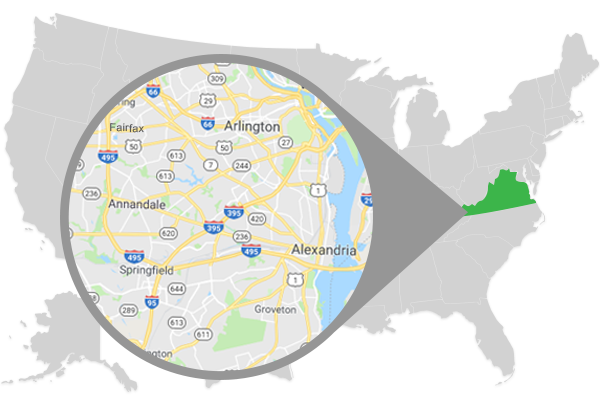When starting a garden, you might find some vegetation that is inviting to some wildlife. When planning a garden, the best thing to do is be mindful of the animals that frequent your yard and plant fruits, vegetables, herbs and flowers that they will not be drawn to. More specifically, there is certain vegetation that will act as a deterrent for particular animals and will keep certain animals away because they don’t like the smell or taste of the plants.
Rabbits
Rabbits are repelled by rosemary, sage and thyme because they don’t like the taste of them. When planted near peas, lettuce and beans, the herbs will help to protect the plants from the rabbits. Onions and garlic plants also work as deterrents for rabbits because the scent and taste bothers them.
Deer
Fencing and hedge screening seem to be the most effective way of keeping deer away from your plants. Shrubs, hedges, and bushes with thorns will also help to prevent deer from eating plants on your property. Deer can be easily scared of noises, so placing wind chimes and other noise-making items nearby should help to keep them away. Deer do not like fragrant smells, they dislike sage, mint, rosemary, dill and oregano, because they are pungent herbs. In addition to keeping the deer away, these pants will help attract insects to your property that can be beneficial to your plants. Sunflowers and daffodils also work to keep deer away and they are often used in orchards by farmers.
Squirrels
Squirrels don’t like daffodils and they work as an effective deterrent for them and for deer as well. Squirrels think that daffodils are poisonous to them, so they stay away from them. To prevent squirrels from eating other crops, they might like, it is advised to disperse daffodils around the certain crops they enjoy which are tomatoes, beans, squash and cucumbers to name a few.
Chipmunks
These creatures will eat young plants, seeds and dig up bulbs. However, they don’t like the smell of onions and garlic. In fact, crushed cloves of garlic mixed with water and sprayed on the leaves of plants can be a useful way of keeping chipmunks, and other animals, away from crops if you don’t have the space of conditions to grow the grow itself.
Raccoons
Raccoons are omnivores and will eat the plants in your garden along with the insects and worms that live in the soil. A special treat for raccoons is young, tender corn, which they will eat before the crop is ripe and ready to harvest. Planting squash around corn plants will help keep raccoons away, because they squash vines are prickly and will work as a border.
Moles
Due to the fact that moles primarily live underground, sometimes it can be difficult to detect them. Although they only feed on insects, they can still damage the roots and bulbs and leave plants exposed for other animals to eat. Some good plants for repelling or deterring moles are Chives, garlic, leeks, onions, and shallots.
Rodents
It can sometimes be difficult to determine if you have a mice and rodent problem until after they have already done their damage and eaten a lot of your plants. Some plants that they will steer clear of are lavender, mint, marigolds and daffodils and even catnip.
Domestic pets
Wild animals are the only nuisances to your garden. If you want to keep domestic animals away from you plants, there are some things you can do and plant to deter them. While most of the domestic animals won’t eat the plants, they will dig, scratch and damage the plants. Cats will prey on the bird population in your yard. Plants with strong odors seem to be the best option to keep cats and dogs away from the garden. Their sense of smell is much more sophisticated than people.
Cayenne pepper provides a strong smell and will aid in keeping the animals away. Pets can help to keep wildlife away because some smaller animals see them as a threat or potential predator. When brushing your pets, consider collecting the hair that falls off of them and place it in your garden. The smell will help to deter squirrels, rabbits and chipmunks.
What should I do next if these techniques aren’t working?
These plants listed above can help to deter animals if they are used in conjunction with proper fencing and the use of bushes, hedges and proper pest control services and wildlife removal assistance. Keeping wildlife away from your property also has to do with the maintenance of your property, such as keeping yards, clean and properly disposing of garbage. Wildlife is an important part of maintaining the ecosystem, so it’s important to not exclude all animals, but rather just the ones causing extreme damage.
Planting alternative plants that the animals frequent your yard will help to divert their attention to the crops they like and avoid the plants you are attempting to protect. An example of a good plant for rabbits is clover or soybeans, which are some of their favorite foods and should help protect other crops you wish to keep in-tact.
I hope these tips help you out with your animal control and maintenance with the plants in your yard or your garden. If you are still experiencing problems with nuisance animals or you have animals in your home causing problems, please call Summit Environmental Solutions (SES) and we will send out a wildlife removal technician or pest control technician, depending on what’s going on, to provide you a free estimate for animal removal, exclusion or deterrent services. We also offer repairs if animals have caused damage to parts of your home such as insulation, vents or the attic space. If you are having problems with sick or injured wildlife, you will need to contact animal control and they will be able to assist you with your needs. For more information about our services or to schedule your free estimate, contact us today.




